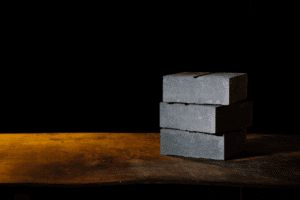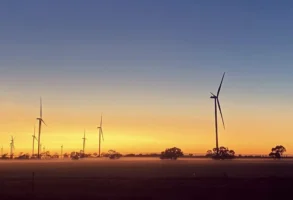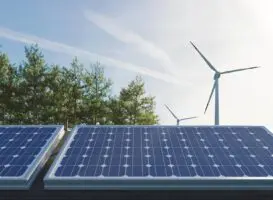Neoen’s massive plans for a 350MW solar farm and 100MW big battery in southern NSW, each ranking among Australia’s largest, have secured planning approval from NSW planning authorities, but with conditions to minimise potential environmental impacts.
The Culcairn solar and battery project will see around 900,000 solar panels installed with single-axis tracking across an area of just over 1,000 hectares. An additional 100MW/200MWh lithium-ion big battery will also be added to the project to provide grid support and firming services, which Neoen says will put ‘downward pressure’ on wholesale electricity prices, particularly at peak demand periods.
The NSW Independent Planning Commission (IPC), has granted the Culcairn project development approval, giving the green light to a project that will generate an estimated $400 to $500 million in infrastructure investment and around 400 jobs during its construction phase.
The Culcairn solar farm will be situated just north of the dual-township of Albury-Wodonga, on the NSW-Victorian border. It will sit within the Greater Hume Council area, which has previously raised concerns about the construction of a solar project and big battery at the nearby Walla Walla solar farm.
The council raised concerns about the potential for a ‘nuclear meltdown’ style of failure in the big battery – however, NSW planning authorities proceeded to approve the Walla Walla project, which will be located nearby to the Culcairn solar and battery project.
The council had likewise opposed the construction of the Culcairn project, telling the NSW IPC that the solar farm would impact the visual amenity for nearby residents, that there were concerns about the ‘heat island’ effect of the solar farm, that the project would lead to the loss of agricultural lands.
The project also attracted a number of objections from individuals that mostly focused on the project’s impacts on agricultural lands.
In its response, Neoen noted that only a small proportion of the land selected for the Culcairn solar farm would become unavailable for agricultural use, noting that the owners of the land intended to continue using most of the property for agricultural use, as well as allowing grazing of livestock around the solar farm.
“The landowners intend to continue to focus on farming as their primary source of revenue, and co-locating grazing with solar represents a practically feasible option across the life of the development,” Neoen’s response to the submissions said.
“Therefore, co-locating solar farm with agricultural sheep grazing is a viable way to ensure that farm activity and farm output is not lost, as well as provide both meat and wool to “feed the nation”, with pasture maintained for sheep feed as well as additional benefits such as dust and erosion control.”
The Independent Planning Commission ultimately agreed with the conclusions of the NSW planning department in deciding that the project was overall in the public interest, granting approval for the development.
“The Commission finds that on balance, and when weighed against the Objects of the EP&A Act, principles of ecologically sustainable development and benefits, the impacts of the project are acceptable and capable of being appropriately mitigated,” the NSW IPC’s statement of reasons says.
“The commission is of the view that the project is in the public interest.”
The Independent Planning Commission approved the project with a series of conditions, which will require Neoen to undertake measures that minimise any potentially adverse environmental impacts, and the preparation of a plan for returning the site to its original condition after the project is decommissioned.
The approval adds to more than $2.3 billion worth of major new solar projects that have signed off by the NSW IPC, many of which will be located within the New South Wales Riverina region, set to become host to one of the state’s first Renewable Energy Zones, in the South-West region.







